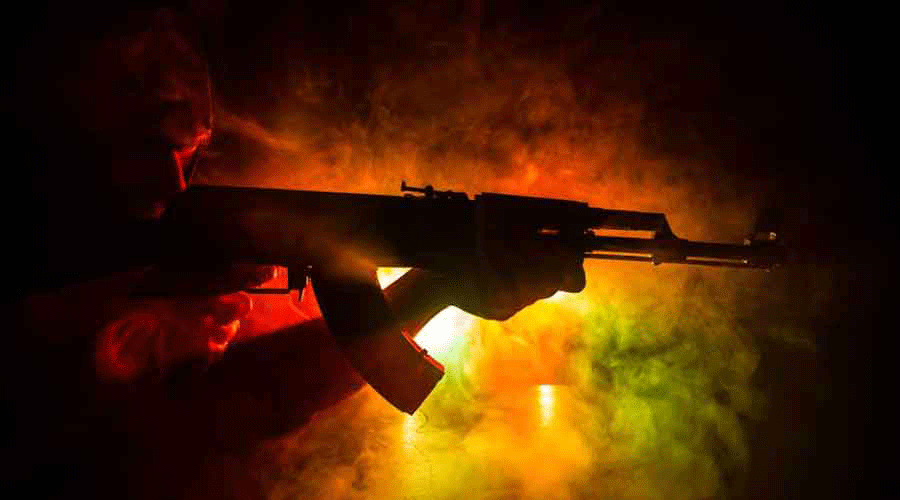India has expressed concern on the rising number of children recruited and involved in terrorism-related activities, terming it as a "dangerous and worrying trend" and asked UN member states to demonstrate greater political will to hold the perpetrators of terrorism and their sponsors to account and also fulfil the Security Council's child protection obligations.
Addressing the UNSC high-level open debate on Children and Armed Conflict on Tuesday, Charge d'affaires at India's Permanent Mission to the UN Ambassador R Ravindra said school closures due to the pandemic have been misused by terrorist groups to target children, including through online avenues, for radicalisation and indoctrination in violent extremist ideologies.
A dangerous and worrying trend in global terrorism is the rising number of children that are recruited and involved in terrorism-related activities. For terror groups, children are most susceptible to manipulation, whether as active participants in terror or as human shields to protect the perpetrators of terror, he said.
There is an urgent need for a more coordinated approach in implementing the child protection and counter terrorism agenda. Member states need to demonstrate greater political will to hold the perpetrators of terrorism and their sponsors to account, and to fulfil the Council's child protection obligations, Ravindra said.
The debate came a week after the report of the Secretary General on Children and Armed Conflict' was released here. The report mentions that over 25% of child casualties (2,257 children) were caused by mines, improvised explosive devices and explosive remnants of war.
"It is a matter of deep concern that terrorist groups have resorted to landmines and IEDs as low cost and effective options to spread terror and threaten innocent civilians including children. Such usage has only increased; we need to strongly condemn and take effective measures to combat this trend," Ravindra said, adding that India supports the efforts of the UN Mine Action Service (UNMAS), UNDP and other agencies which have been working in conflict zones across the world.
He said India recognises the importance of having sufficient resources and requisite number of child protection advisers in peacekeeping missions for the effective implementation of child protection programmes.
"The Council should consider incorporating adequate child protection provisions and capacity in all relevant mandates of United Nations peacekeeping operations. There is also a greater need for constructive engagement with the respective national governments in the formulation and implementation of child protection action plans, which is integral to sustaining durable peace," the envoy said.
Ravindra noted with concern that children continue to suffer disproportionately in most situations of armed conflict around the world, remain most susceptible to sufferings and are particularly vulnerable to impacts of armed conflicts.
India stressed on the need for ending impunity for all actors inciting and perpetrating grave violations against children in armed conflict situations.
Ravindra underscored that it is vital for member states to develop a comprehensive legal framework in line with international standards, to ensure the effective prosecution of child-related crime.
National governments have the primary responsibility for prosecuting and deterring such crimes in conflict situations on their territories, even if these are alleged to have been committed by non-state actors, he said, adding that where required, the UN could assist member states in augmenting their capacities to deal with this issue.
The envoy underlined that while significant progress has been achieved to protect children in situations of armed conflict, grave violations against children continue to persist, and the ongoing COVID-19 pandemic has further magnified the risks children face. It is, therefore, important that member states focus on child protection measures in their pandemic response and recovery plans, as well, he asserted.
India also stressed that member states need to support effective legal frameworks for protection and promotion of child rights.
It is important to build an enabling and conducive environment to ensure holistic development of a child with special focus on nutrition, education and safety. Children who grow up in conflict and post-conflict situations often need a fresh start, Ravindra said, emphasising that support to national governments to strengthen legal and operational tools for child protection is important in this context.
PTI











